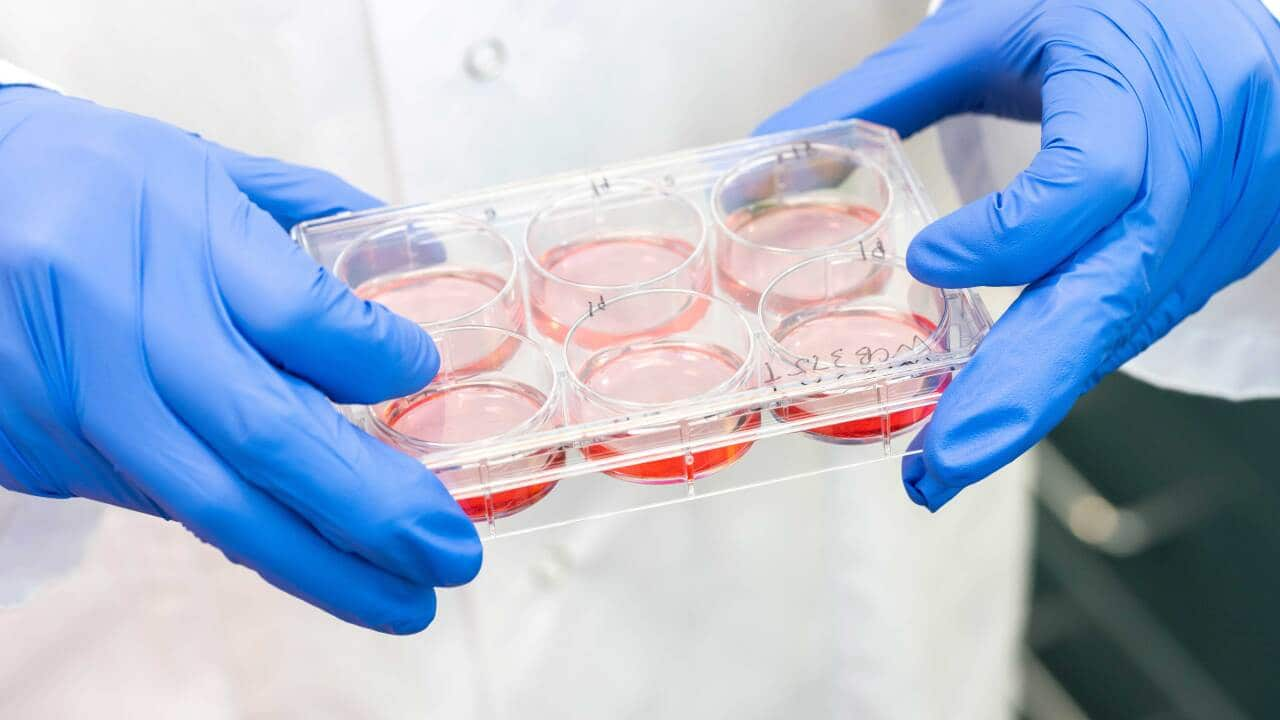TRANSCRIPT
Cancerous tissue and ingenuity is being harnessed by researchers in Melbourne in the pursuit of making treatment more effective for bowel cancer patients.
Professor Peter Gibbs of the Walter and Eliza Hall Institute of Medical Research says their work is aimed at helping better target responses to the deadly disease.
"What we're trying to do is to get better at selecting the best treatment for patients with advance colorectal cancer. What we've shown with this research, work well in the laboratory, they also work well in the patient. And equally if not more importantly, when they don't work in the laboratory, they don't work in the patient."
It's been described as a world-first study.
Their research uses tumour samples from patients with advanced bowel cancer to create what's called organoids or 3-D models - roughly the size of a grain of sand.
Professor Gibbs says they found the lab testing could predict drug treatment effectiveness with an 83 per cent accuracy.
"What we've done is to take a biopsy from patients and we've grown hundreds of little cancers in the laboratory, we test those cancers with various chemotherapy and look at how those treatments work in a laboratory. For many people we may only get one or two roads of treatment in, so it's important you are offering the best treatment."
Each year, more than 15,000 Australians are told they have bowel cancer.
Treatment is more effective when it's detected early.
But it's often diagnosed late because of a lack of symptoms.
Professor Graham Newstead of Bowl Cancer Australia said the research's findings showed promising signs for the fight against the nation's second most common cancer killer.
"We hope that this will be a big progress for our future, techniques which attack that cancer directly, specifically in that individual rather than generic treatment. This is a gradual advancement in the treatment to individualise the management of established bowl cancers and so hopefully prevent mortality."
For the peak group, continued screening efforts and the expansion of specialist nurses are also key focuses.
With clinical trials for the lab-grown tumours to proceed in the coming months, Professor Gibbs says there's also potential for their use against other cancer types.
"The time aspect is crucial for any patient or any cancer that's advanced and similar trials can and will be done for other cancer types. We're pretty excited about what's possible."













